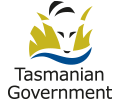2. Scope
In this section:
2.1 Communications scope | 2.2 Effective date | 2.3 Application | 2.4 Legislation | 2.5 Caretaker conventions |
2.1 Communications scope
For the purposes of this policy, ‘communications’ includes:
- activities involved in the production and dissemination of material and information to the Tasmanian public – whatever the communication medium - about government policies, programs and services
- informing members of the public of their obligations, rights and entitlements
- corporate identification of Tasmanian Government agencies, policies, programs, services and infrastructure
- interaction and engagement with the public including the use of collaborative communication channels
- internal communication activities and processes within government
- communications advice, including to heads of agency and Ministers
- management of issues of importance or strategic value
- communications research and analysis of public information needs/ views
- monitoring and evaluation of communication programs and projects.
2.2 Effective date
Tasmanian Government Communications Policy Fourth Edition issued May 2015.
2.3 Application
This policy applies to the following Tasmanian Government agencies:
- Department of Education
- Department of Health and Human Services
- Department of Justice
- Department of Police and Emergency Management (including State Fire Commission)
- Department of Premier and Cabinet
- Department of Primary Industries, Parks, Water and Environment (including Inland Fisheries Service)
- Department of State Growth
- Tourism Tasmania
- Department of Treasury and Finance.
Tasmanian Government Business Enterprises (GBEs), State-owned Companies (SOCs) and independent statutory authorities may use the policy as a guide to their own communications.
2.4 Legislation
Legislation referenced in this policy includes:
- Archives Act 1983
- Copyright Act 1968 (Commonwealth)
- Libraries Act 1984
- Personal Information Protection Act 2004
- Right to Information Act 2009
- State Service Act 2000
- Trademark Act 1995
2.5 Caretaker conventions
During the period preceding an election for the House of Assembly, the Government assumes a ‘caretaker role’. The business of Government continues and the provision of services remains unchanged. However, caretaker conventions are implemented to protect the apolitical nature of the State Service during an election campaign.
At the beginning of the caretaker period, individual agencies need to review all communications activity, including television and print advertising, newsletters and information on websites, to ensure it is apolitical and does not promote the Government’s policies or emphasise the achievements of the Government or a Minister.
Read the full State Election Caretaker Conventions on the DPAC website.
